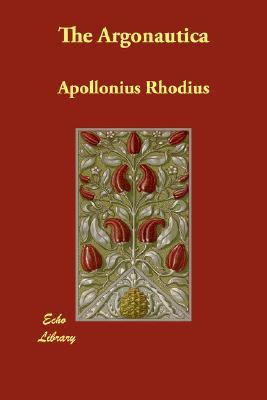BOOK IV
byBook IV opens with a sense of closure, as the Argonauts complete their perilous voyage and finally return to their homeland. This final leg of their journey is free from the supernatural threats and divine obstacles that once filled their path. Calm waters replace the chaos, suggesting that their trials have earned them the right to peace. The ship Argo, once tossed by curses and guided by prophecy, now glides quietly back to familiar shores. Each hero aboard carries memories of personal growth, forged through shared hardship and mutual trust. The mission to retrieve the Golden Fleece ends not in fanfare, but in a quiet acknowledgment of endurance, bravery, and divine favor. The absence of further conflict underlines a timeless message—those who journey with loyalty and purpose will, in the end, find rest.
Woven throughout this myth are references to places and figures rooted in ancient Greek tradition. The Planctae, also known as the Wandering Rocks, represent trials navigated only through divine assistance, emphasizing the gods’ vital role in mortal affairs. Hecate, mentioned here as the daughter of Perses, hints at the shifting genealogies that shaped classical mythology. The Argo’s success in passing through such impossibilities is seen not as luck, but as a reward for piety and cooperation. These myths do not stand alone—they echo the geography and cultural understandings of early Greece, from the naming of lands like Ephyra and Corcyra to references to metals like orichalcum that connected the Mediterranean with distant lands. Even tools such as the Sickle carry mythic weight, symbolizing the shaping of destinies through divine relics. Through these symbols, mythology becomes a way to interpret both the seen and unseen aspects of ancient life.
The journey of the Argonauts is not merely a tale of conquest, but a study in transformation. Each character began the quest seeking glory, yet by the end, it is resilience and unity that define their success. No single hero stands above the others; rather, their strength lies in shared courage and sacrifice. This reflects an ancient worldview where individual excellence was respected, but communal survival was revered. By surviving their trials together, the Argonauts demonstrate that greatness is not measured in solo feats, but in collective perseverance. Jason may have carried the fleece, but it was the entire crew’s spirit that carried him. That quiet truth gives this final book emotional weight and cultural significance, even in its simplicity.
From an educational angle, the blending of myth with geography in this story served the Greeks as a way to make sense of the unknown. The Argo’s travels offered a map of sorts—not one drawn with precision, but with meaning. Places mentioned—whether real or symbolic—became anchors for moral and spiritual ideas. For example, the Symplegades represented dangers that could be overcome only once, like rites of passage. Their stillness after the Argo’s passing is a metaphor for facing the unknown and leaving a path for others. Myth was not just entertainment; it was how ancient people passed down lessons of fate, courage, and the favor of the gods. It taught them that the sea could be both cruel and kind—and that navigating either required faith.
The peaceful return of the Argonauts does not mean their journey was without cost. It is implied that some losses were felt along the way, even if not all are named. Their silence on these matters suggests the weight of memory carried forward by each crewmember. The Golden Fleece was always a symbol of ambition, but in its attainment, the Argonauts gained something far more important: wisdom. They learned that survival in a world ruled by divine whim and natural force depends not just on strength, but on humility and shared resolve. The voyage made them legends, but it also made them human. In this conclusion, myth and reality converge—not in spectacle, but in peace.
For readers today, the story still resonates. We each have our own “Wandering Rocks”—challenges that test our patience, courage, or unity. The Argonauts remind us that these can be passed, but rarely alone. It is through trust, belief, and a willingness to confront what lies ahead that journeys find resolution. In closing, Book IV does not seek to overwhelm with divine spectacle. Instead, it gently places the ship in still waters, asking us to consider what it truly means to arrive.


